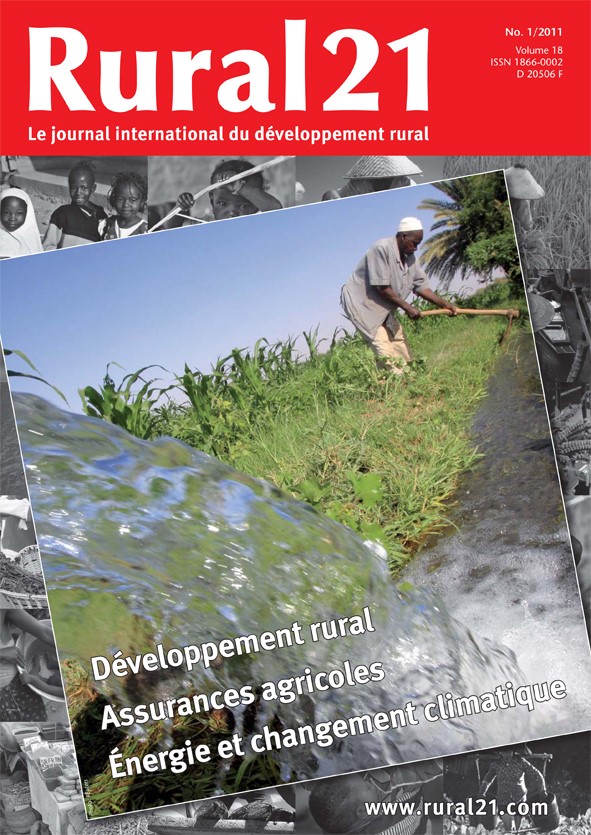Location
The international journal Rural 21 has dedicated more than 40 years to all topics surrounding rural development. Its ambition is to further those strategies and policies that strengthen rural areas of developing and newly industrialising countries and encourage their implementation. The journal addresses the complete range of relevant themes – from agriculture and fisheries via capacity building and education through to health and social security, energy supply and trade. Center-stage is always devoted to inquiring into how measures and strategies can contribute to global food security and to reducing poverty.
Rural 21 desires to further the dialogue between science and politics, the private sector, civil society and practitioners. Two platforms are designed for this purpose: Rural 21 in print is published four times a year, each issue highlighting a specific focus of rural development – this print edition is read in more than 150 countries. In parallel, Rural 21 online keeps the rural development community up to date on news and events, scientific findings and other print and online publications.
Rural 21 is published by DLG-Verlag GmbH in Frankfurt/Germany. Financial partners are BMZ (German Federal Ministry for Economic Cooperation and Development), GIZ (Deutsche Gesellschaft für Internationale Zusammenarbeit), DLG (German Agricultural Society – Deutsche Landwirtschaft-Gesellschaft), SDC (Swiss Agency for Development and Cooperation) and Helvetas Swiss Intercooperation.
The first issue of Rural 21 dates back to 1968. From 1974 to 2007, the journal was published in three languages entitled "entwicklung & ländlicher raum" / "agriculture & rural development" / "agriculture & développement rural". In 2008, the journal was relaunched as "Rural 21".
Members:
Resources
Displaying 171 - 175 of 319Why a sustainable forest policy is so difficult
Establishing a rational forest policy is a difficult task for many countries. One of the reasons for this is that different policy sectors - such as energy policy, foreign trade policy, are closely linked to forest policy and the interests of a multitude of actors need to be accommodated. Moreover, the unregulated exploitation of forests promises large profits.
Woodfuels in Kenya and Rwanda: powering and driving the economy of the rural areas
The number of woodfuel consumers in Africa is projected to increase from around 2.5 billion in 2004 to 2.7 billion by 2030, with sub-Saharan Africa accounting for the highest increase. Rwanda and Kenya are two good examples of countries in which woodfuel plays a key role in energy provision, poverty alleviation and economic development.
The response of FIAN International
The outcome of the Madrid High-Level Meeting on Food Security can be considered a victory for those who want to see the multilateral governance of the global food and agriculture system improved and strengthened, and conducted within the Right to Adequate Food framework.
Peru: Preserving tropical forests with a focus on sustainable and participatory development
Against the backdrop of increasing deforestation in Natural Protected Areas due to illegal logging and shifting agriculture, the Peruvian association DRIS has implemented a programme in three districts of the country. The goal is to involve the families in forest protection activities while simultaneously providing them with income opportunities
L'ILRI redonne espoir aux éleveurs kényans avec l'assurance bétail indexée
Alors qu'ils sont tributaires de l'élevage, de nombreux ménages vivant dans les régions arides et semi-arides du Kenya sont régulièrement confrontés à des pertes de bétail importantes en raison des sécheresses chroniques qui affectent la région.



